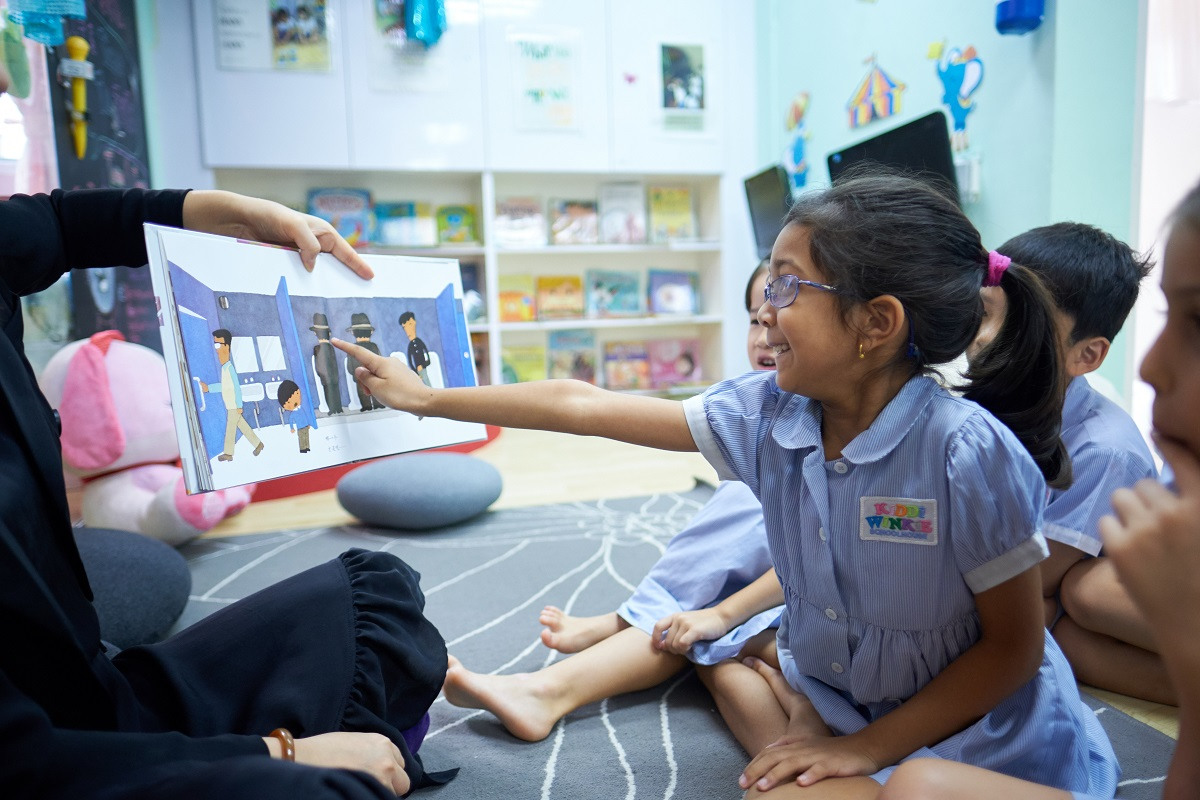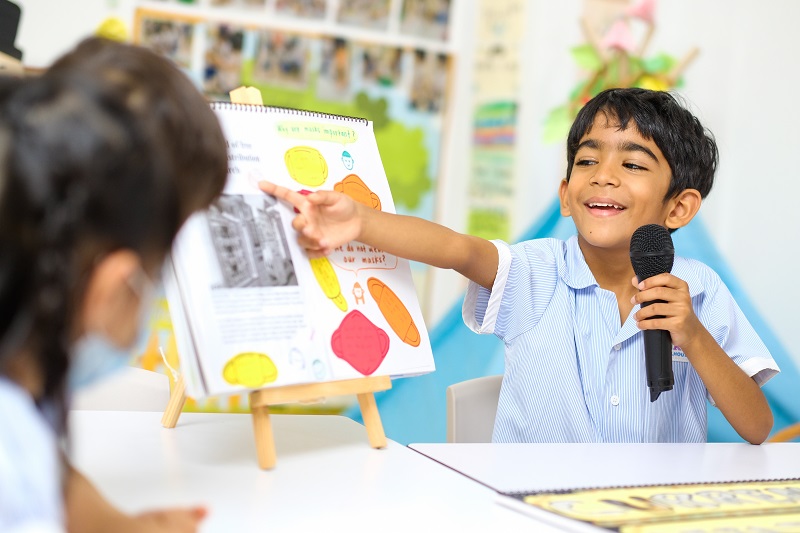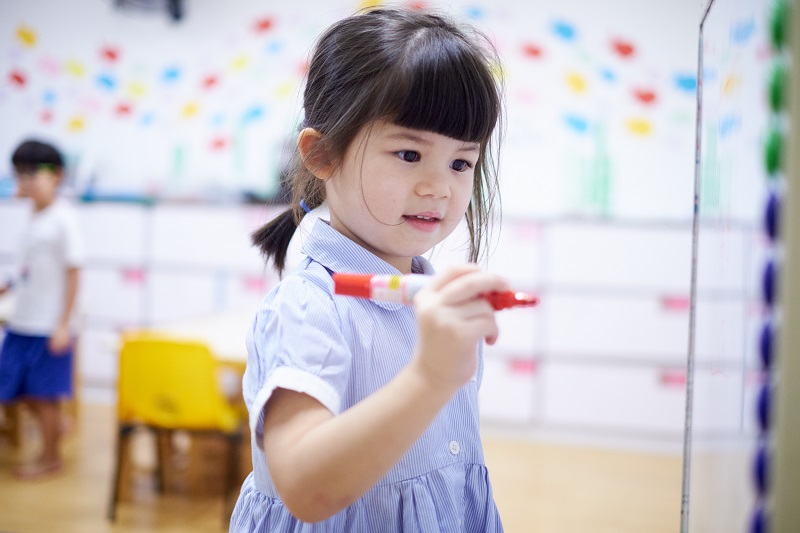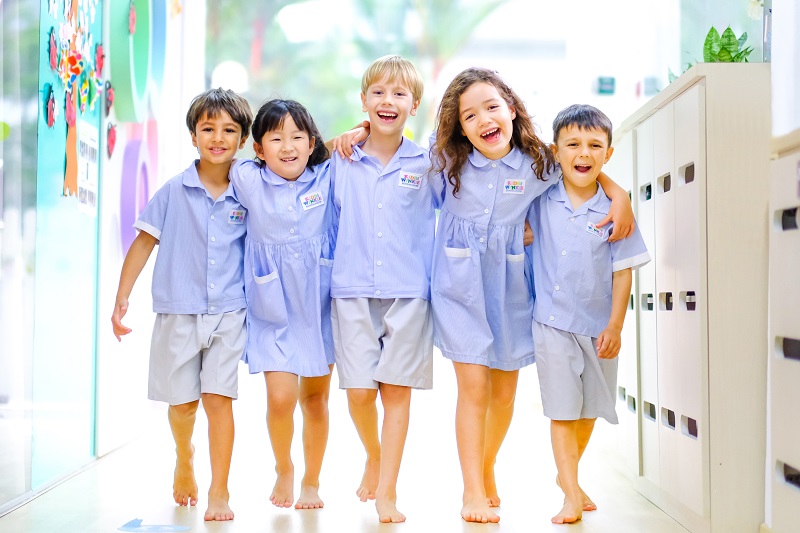
In 2009, the Singapore Ministry of Education (MOE) introduced a new way for our primary school students to learn English. The programme, called STELLAR (short for Strategies for English Language Learning and Reading), students learn not through textbooks but with creative activities like storytelling and role-playing, as well as different texts such as news articles.
Parents who are preparing their children for the inevitable entry to primary school may feel concerned or daunted by perceived expectations. Perhaps your friend’s children are already accomplished readers, while yours is still piecing sounds together. It is important for parents to keep in mind that every child is different.
How do preschoolers pick up reading?
According to research, children generally go through the three main phases when learning to read:
● Pre-reading: Through visual cues, children become aware that print carries a message and makes sense of print in the environment, such as an ‘exit’ sign.
● Initial reading: As children learn the names and sounds of letters, they use this knowledge to decode words and recognise some words by sight.
● Fluent reading: As children start to decode words faster and more efficiently, they will be able to read more effortlessly.

Children progress differently, and that’s okay
Developmental milestones are a guideline, and children go on to develop reading skills at different rates. Some children may take a little longer to pick up reading and writing, but that does not mean that they are not on track to become good readers eventually.
In reality, not all children will be fluent readers when they enter primary school, and it is expected that there will be some children who need some extra time or a little extra boost to get there. Most primary schools have a Primary 1 reading programme dedicated to making this progress easier for these children.
So what does my child need to achieve to be ready for primary school?
As preschools have differing curricula, albeit based on ECDA’s Nurturing Early Learners framework, children enter primary school with varying levels of academic readiness. With all that being said, there are still some developmental milestones that children should ideally meet in order to be ready for primary school.

Preschoolers should know how to write their names
The first thing that most preschoolers learn how to write is their own name. This is important for them to identify their own belongings, as well as label their own worksheets and books.
Preschoolers should know the alphabet and phonetic sounds
Before primary school, children should be thoroughly familiar with the alphabet, and also understand the concept that each letter makes a different phonetic sound. Most children will be able to grasp the concept of the various sounds, although not all will be able to string them together to read whole words.
Preschoolers should be able to listen for information and enjoyment
At this level, children should be able to pay attention when the teacher is reading a story to the class. They may respond appropriately by laughing at jokes, or sympathising with a character’s dilemma. They demonstrate an understanding of what they are hearing by following instructions during reading activities.

Preschoolers should be able to communicate effectively with others
It is crucial for children to be able to express their wants and needs to their teachers. They should be able to ask questions to explore and discover, and be able to discuss stories, drawings, and events with others.
When asked, they should be able to describe people, places and concepts with appropriate vocabulary, using appropriate adjectives like ‘happy’, colourful’, ‘furry’, etc.
How do preschool teachers in Singapore prepare children for primary school?
Toward the end of the K2 year, the children in Kiddiwinkie Schoolhouse go through an important and useful P1 Preparation Programme. This programme helps prepare the children for the big step ahead of them.
Keen to find out more about our specialised curriculum and how it effectively prepares children for primary school? Book a tour at your preferred Kiddiwinkie Schoolhouse location today.
Follow us on social media to stay updated on our latest updates and happenings:





